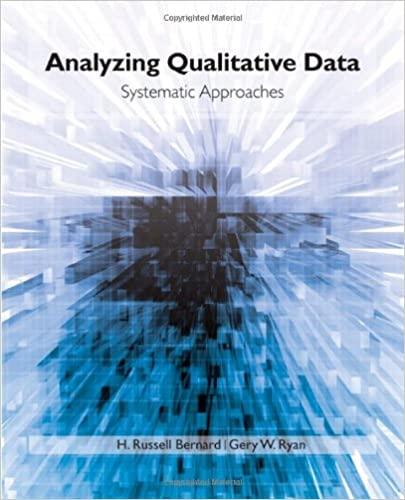Answered step by step
Verified Expert Solution
Question
1 Approved Answer
Can hypnosis help you stop smoking? By The Society of Hypnotherapists Today, The Society of Hypnotherapists is offering its services to those hoping to



Can hypnosis help you stop smoking? By The Society of Hypnotherapists Today, The Society of Hypnotherapists is offering its services to those hoping to quit smoking in 2022. The society is run by a Certified Master Hypnotherapist. Hypnosis is a hyper-receptive learning state in which behaviors, habits, and triggers can be sculpted and changed. This hyper-receptive state is controlled by invisible magnetic energies in our brains that can be influenced through hypnosis. While explaining the phenomenon, the clinic's website gives the metaphor that the mind is like a dry clay pot. Hypnosis is akin to adding water to it, making it soft and malleable, allowing it to be shaped and changed based on the needs of the individual. The clinic claims that contrary to popular belief, anyone can be hypnotized, it is just a matter of how many sessions it takes. It claims that people slip in and out of hypnosis all the time. According to the website, hypnosis is an extremely relaxing, dream-like state of mind that mimics the foggy feeling that occurs just before falling asleep at night. The most common description from most clients is: "It's like I'm dreaming, but I'm completely awake." To support the power of hypnosis, The Society of Hypnotherapists conducted several studies led by their Director of Science and Research, Dr. Antonio Mesmer. Dr. Mesmer recruited participants who were serious about quitting smoking and offered free hypnotherapy sessions. Dr. Mesmer himself then conducted the hypnotherapy himself. What Dr. Mesmer found was that most people see dramatic improvements in only 1 session! 80-90% of participants never smoked again after their first session and remained smoke-free! Our clients often tell us that they've tried so many other methods of quitting smoking including patches and gums, and nothing worked for them. They never knew that quitting smoking can be so easy! Dr. Mesmer also found that the more hypnotherapy sessions a participant undertook, the greater their success. Dr. Mesmer concluded that these results suggested hypnotherapy worked in helping people stop smoking and that these results are significantly better than leading evidence-based treatments for smoking cessation such as Cognitive Behavioural Therapy. "The results we saw were marvelous and it supports our hypothesis that hypnotherapy helps people stop smoking. We saw a relationship between the number of hypnotherapy sessions and smoking cessation. The more sessions people had of hypnotherapy, the better they got! If that doesn't suggest the amazing power of hypnotherapy, then I don't know what is. Why put in the work in Cognitive Behavioral Therapy when you can unconsciously get better through hypnosis?!" To once again demonstrate the power of hypnotherapy, Dr. Mesmer and his team conducted several additional studies and found the same results. This time, they also wanted to show how hypnotherapy worked. Once again, they found similar results showing that 80-90% of people who use hypnotherapy to quit tobacco stay tobacco-free for life. They also claimed that its clients can quit smoking in 1-3 sessions which makes it possible to be tobacco-free for less than the cost of a months' worth of cigarettes! Dr. Mesmer stated that the effectiveness of hypnotherapy is due to the accelerated learning state known as a "Trance", which changes the invisible magnetic energies in our brains, allowing participants to quickly and effectively change bad habits. The hypnotherapist then takes advantage of the "Trance" state to assist the person in overcoming cravings and withdrawals, making for what most clients call a "much easier than I ever imagined it could be" kind of experience. Dr. Mesmer claimed that: "Of course, if 90% of people get better, that means 10% don't. This is because 10% of people have magnetic energies that can't be shifted, and so it doesn't matter if they are in a trance state because we can't shift that energy to break the bad habits" 1) Overreliance on anecdotes - An anecdote is a story about a single person. In science, we prefer to base our conclusions on the results of systematic studies of lots of people (data), rather than on information about single individuals. Stories about single people can be hard to verify, hard to generalize, and fail to inform us about cause-and- effect relationships. In general, statements that are backed up with data gathered from a study are to be preferred over statements that reflect the opinion of just a single person, or observations or experiences of just a single person's life. Any single person's observations may be based on an unrepresentative sample and may be influenced by biases (including a social desirability bias or biases in memory). 2) Meaningless psychobabble - There are many technical words in science (e.g., neurotransmitter). These words have a precise meaning. However, pseudoscientific claims often use scientific-sounding words that don't really mean anything (e.g., neuropower). Technical jargon and scientific-sounding words can sound convincing but be essentially meaningless. We should be wary of claims that rely on confusing terminology, especially when those words sound like real scientific ones. 3) Talk of 'proof instead of 'evidence' - Science provides evidence that either supports or refutes certain ideas we have about the world. But 'proving' an idea is almost impossible because future research may show us that our existing ideas are incorrect, or at least only partially true. So, in science we generally avoid using words like "prove, proof, proven", etc. Instead, we should say that a study "supports" an idea, or provides evidence for or against it.
Step by Step Solution
There are 3 Steps involved in it
Step: 1

Get Instant Access to Expert-Tailored Solutions
See step-by-step solutions with expert insights and AI powered tools for academic success
Step: 2

Step: 3

Ace Your Homework with AI
Get the answers you need in no time with our AI-driven, step-by-step assistance
Get Started


